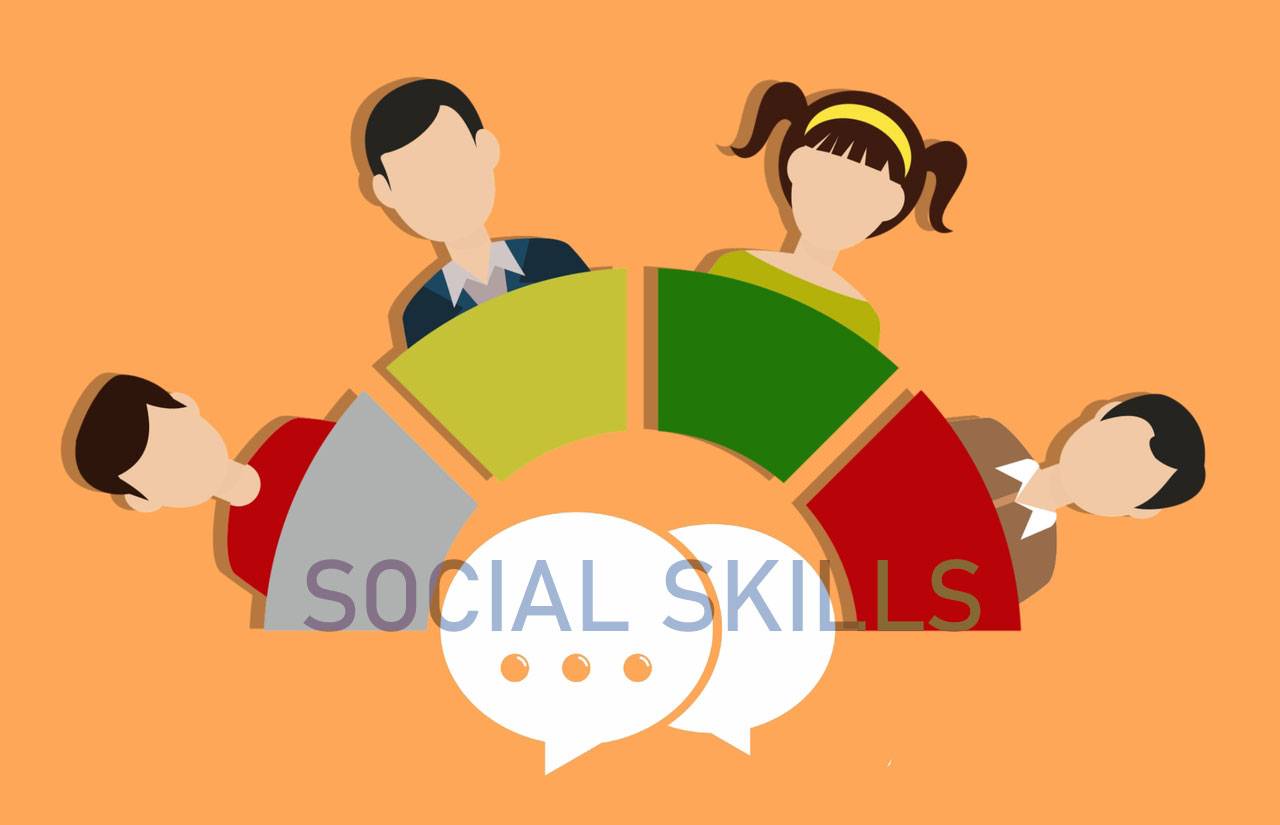8 Social Skills You Should Start Teaching Your Kids Now

As a parent, you want your kids to be successful in life. But what skills do they need to succeed?
We all know that academic skills are important, but social skills are just as important. In fact, many experts believe that social skills are more important than academic skills when it comes to success in life.
That’s why it’s important to start teaching your kids social skills early on. In this blog post, we will discuss 8 social skills that every kid needs and how you can start teaching them now!
What are Social Skills?
Social skills are the skills that we use to interact with other people. They include things like communication, cooperation, empathy, and problem-solving.
Apart from academic skills, social skills are some of the most important skills that kids can learn. That’s because they’re essential for success in school, work, and life in general.
A child can be academically smart, but if they don’t have social skills, they may struggle in school and in life. For example, a child who is shy and doesn’t know how to communicate with others may have a hard time making friends. Or, a child who doesn’t know how to cooperate with others may have a hard time working in groups.
That’s why it’s important to start teaching social skills early on.
What are the 8 Social Skills to Teach Your Child?
There are many different social skills that kids can learn, but some are more important than others. Here are the five most important social skill to start teaching your child today.
1. How to Communicate Effectively:
Communication is the act of sharing information between two or more people. It is a fundamental social skill that is necessary for success in school, work, and life.
There are many different ways to communicate, including verbal communication (speaking), nonverbal communication (body language), and written communication (writing).
It’s important to teach kids how to communicate effectively. That means teaching them how to express their thoughts and feelings clearly, listen to others, and resolve conflicts.
You can start teaching communication skills by modeling effective communication yourself. When you’re talking to your child, make sure to use clear and concise language. Also, make sure to listen to your child and give them a chance to express their thoughts and feelings.
In addition, there are many books and resources that can help you teach communication skills to kids. For example, The Communication Skills Workbook for Kids is a great resource that is designed to help kids learn how to communicate effectively.
Another way to teach communication skills is to have your child participate in activities that require communication. For example, you can have them play games that require communication, such as charades or Pictionary. Or, you can have them participate in group activities, such as sports or clubs.
Finally, you can teach communication skills through role-playing. Role-playing is when you act out a situation with your child. For example, you can role-play a conversation between two friends. This is a great way for kids to practice and learn communication skills.
2. How to have a conversation with someone they don’t know:
As much as we would love to be with our kids all the time, we won’t always be with them. As a result, your children may have to converse with people they don’t know on a daily basis. It could be the cashier at the grocery store, their teacher’s assistant, or a new friend at recess.
No matter the situation, it’s important for your child to know how to have a conversation with someone they don’t know. This is an important skill for making friends and networking.
You can help your child practice this skill by having him or her start conversations with people they don’t know, such as the cashier at the grocery store or the librarian at the library. (They should do this with your supervision).
Encourage your child to ask questions, such as “How are you today?” or “What is your favorite book?”
3. How to be polite and respectful:
Respect is an important social skill that children need to learn. It’s important to teach your child to be respectful of others, as well as themselves.
You can help your child practice this skill by teaching them to use please and thank you, to say sorry when they make a mistake, and to use manners.
It’s also important to teach your child to be respectful of personal space. Personal space is the physical space around a person. It’s important to respect someone’s personal space, as it can make them feel uncomfortable if you invade it.
You can help your child practice this skill by having them stand a comfortable distance away from people when they are talking to them.
4. How to deal with difficult emotions:
Being able to deal with difficult emotions is an important social skill. Even as adults, we all experience a wide range of emotions like anger, frustration and sadness.
It is therefore very important that we teach our kids how to deal with them in a healthy way.
Let them know that their emotions are valid and that it’s okay to feel them. This will help them understand and accept their emotions.
However, you should encourage them to express their emotions in a healthy way. For example, you can encourage them to express their anger by hitting a pillow or kicking a soccer ball, or going for a walk instead of hitting a person or breaking something.
You can also encourage them to talk about their emotions. This will help them understand and cope with their emotions.
You can also teach your child how to deal with emotions by modeling healthy coping mechanisms yourself.
For example, when you’re feeling stressed, you can take a deep breath and count to ten. You can also encourage your child to express their emotions in a healthy way, such as through art or writing or whatever other hobby they have.
5. How to make good friends and keep them:
Making friends is an important social skill. This world can be a lonely place without friends. You can help your child make the right type of friends by encouraging him or her to be open and friendly to others.
For example, you can encourage your child to smile and say hello to people they meet. You can also encourage your child to be a good listener and to ask questions about others.
You can help your child practice this skill by encouraging him or her to talk to other kids and be friendly. You can also help your child make friends by signing them up for activities, such as sports or clubs.
This will help them meet other kids with similar interests and relate to them better.
It’s also important to teach your child how to keep friends. Once your child has made friends, it’s important to teach him or her how to keep them. This includes being a good friend yourself and teaching your child the importance of being loyal, honest and trustworthy.
You can help your child practice this skill by encouraging him or her to be a good listener, to share, to be fair and to apologize
6. How to stay positive in the face of adversity:
It’s normal to feel sad or disappointed when you experience rejection or when you’re going through a tough time. However, it’s important to teach your child how to deal with these emotions in a healthy way.
It’s important to teach your child how to stay positive in the face of adversity. This world can be tough and there will be times when things don’t go your child’s way.
But it’s important to teach your child how to stay positive and not give up.
You can help your child practice this skill by encouraging him or her to see the good in every situation and to be grateful for what they have. You can also encourage your child to find ways to help others who are going through tough times.
For example, your child can volunteer at a local shelter or food bank. This should help them see that even when times are tough, there are still ways to make a difference.
7. Empathy:
Empathy is the ability to understand and share the feelings of another person. It’s an important social skill because it allows us to feel connected to others. It also allows us to see things from another person’s perspective and to understand their feelings.
You can help your child develop empathy by encouraging him or her to be curious about others. For example, you can encourage your child to ask questions about someone’s day or how they’re feeling. You can also encourage your child to put themselves in another person’s shoes and to try to understand how they’re feeling.
It’s also important to teach your child how to express empathy. This includes teaching your child how to use words to express their feelings. For example, you can encourage your child to say, “I’m sorry you’re feeling sad” or “That must be really hard for you.”
You can also help your child express empathy by modeling it yourself. When you’re talking to someone, make sure to use language that shows you understand how they’re feeling. For example, you can say, “That sounds really frustrating” or “I can see how that would be confusing.”
8. How to politely refuse an invitation or request:
There will be times when your child is invited to do something that they don’t want to do or they’re asked to do something that they don’t want to do. It’s important to teach your child how to politely refuse in these situations.
You can help your child practice this skill by role-playing different situations. For example, you can pretend to be a friend who asks your child to do something that they don’t want to do. Then, you can help your child practice saying no in a polite way.
It’s also important to teach your child how to explain why they’re saying no. For example, your child can say, “I’m sorry, but I don’t want to do that” or “I don’t think that would be a good idea.”
Conclusion
We all know that being academically smart is not the only thing that determines success in life. There are a whole set of social skills that are just as important, if not more so.
The good news is, these social skills can be taught. And the sooner you start teaching them to your child, the better.
We’ve listed 8 social skills to start teaching your kids right now. This will help them build strong relationships and navigate the social world. These skills are important for success in school and in the workplace, so start teaching them now. Start with the basics and then move on to more complex skills.
And don’t forget to model these behaviors yourself. After all, your child is watching you and learning from you. So show them how it’s done.

